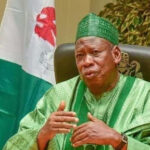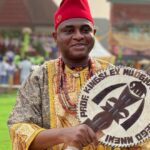Tomorrow’s presidential election will most likely be the last time for President Muhammadu Buhari and ex-Vice President Atiku Abubakar to be on the same ballot seeking for the nation’s number one position.
Though INEC has cleared 73 candidates representing different political parties to vie for the presidency tomorrow, attention of Nigerians and the world at large is decidedly on Buhari and Atiku who are plying the tickets of APC and PDP, respectively.
Buhari who is now 76 and Atiku 72, are the oldest of the remaining 71 candidates.
Daily Trust reports that beyond the constitutional provision which restricts elected president or governor to seek for re-election, many other factors would not allow either Buhari or Atiku to contest for the presidency again after this year’s exercise.
If for instance President Buhari who is from the North wins, he would round-off his tenure in 2023 at the age of 80 and would not seek for another term unless the constitution is amended which is very unlikely.
And in the event he is defeated, it is unlikely for him to vie for the position in 2023 considering his age and other variables.
In line with rotational system adopted by political actors, the baton of leadership would move to the southern part of Nigeria where the South-West, South-East and South-South would all struggle to produce the president.
Similarly, if luck comes the way of Atiku and he defeats President Buhari, he would be 76 years by the time he completes his first term.
But in the event he is defeated, he would be around 85 years old when another chance for the North would come, an advanced age for someone outside power to seek it even by African standard. After 2023, the presidency is expected to last in the south until 2031.
Analysts believe that the concept of rotational presidency has come to stay in the Nigerian political system, at least for now, and most political parties would have to respect this unconventional ‘gentleman’s’ agreement to remain relevant in politics.
In the event that Atiku seeks a second term at 76, he is likely to be denied.
The PDP partly suffered its devastating defeat in 2015 when in defiance of the principle of zoning, ex-president Goodluck Jonathan insisted on going for another term.
The Nigerian constitution does not speak about rotational leadership, it only speaks about federal character in employment opportunities and political appointments, but the issue of rotation for most elective political offices at all levels has come to stay and political predators are not willing to let it go.

 Join Daily Trust WhatsApp Community For Quick Access To News and Happenings Around You.
Join Daily Trust WhatsApp Community For Quick Access To News and Happenings Around You.


